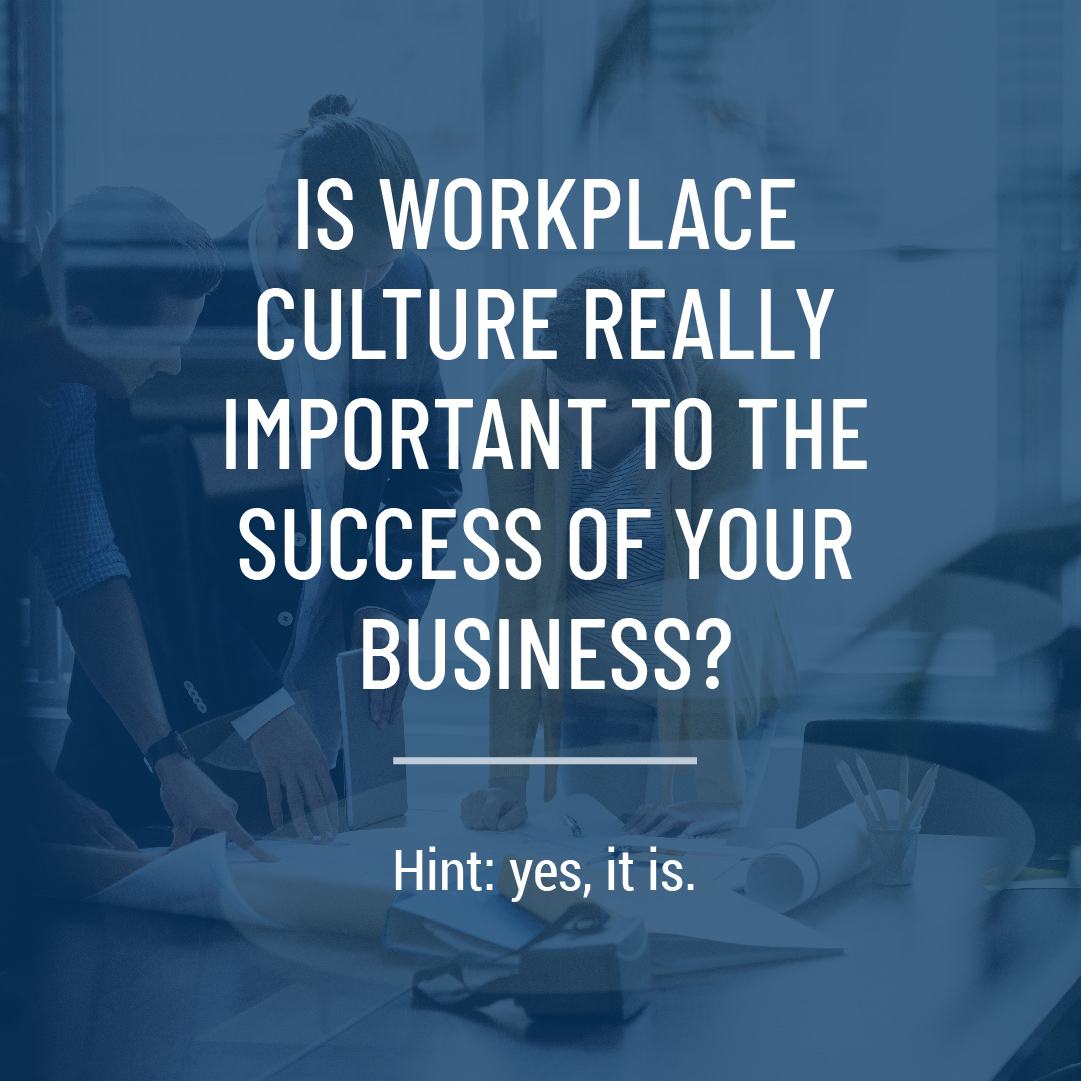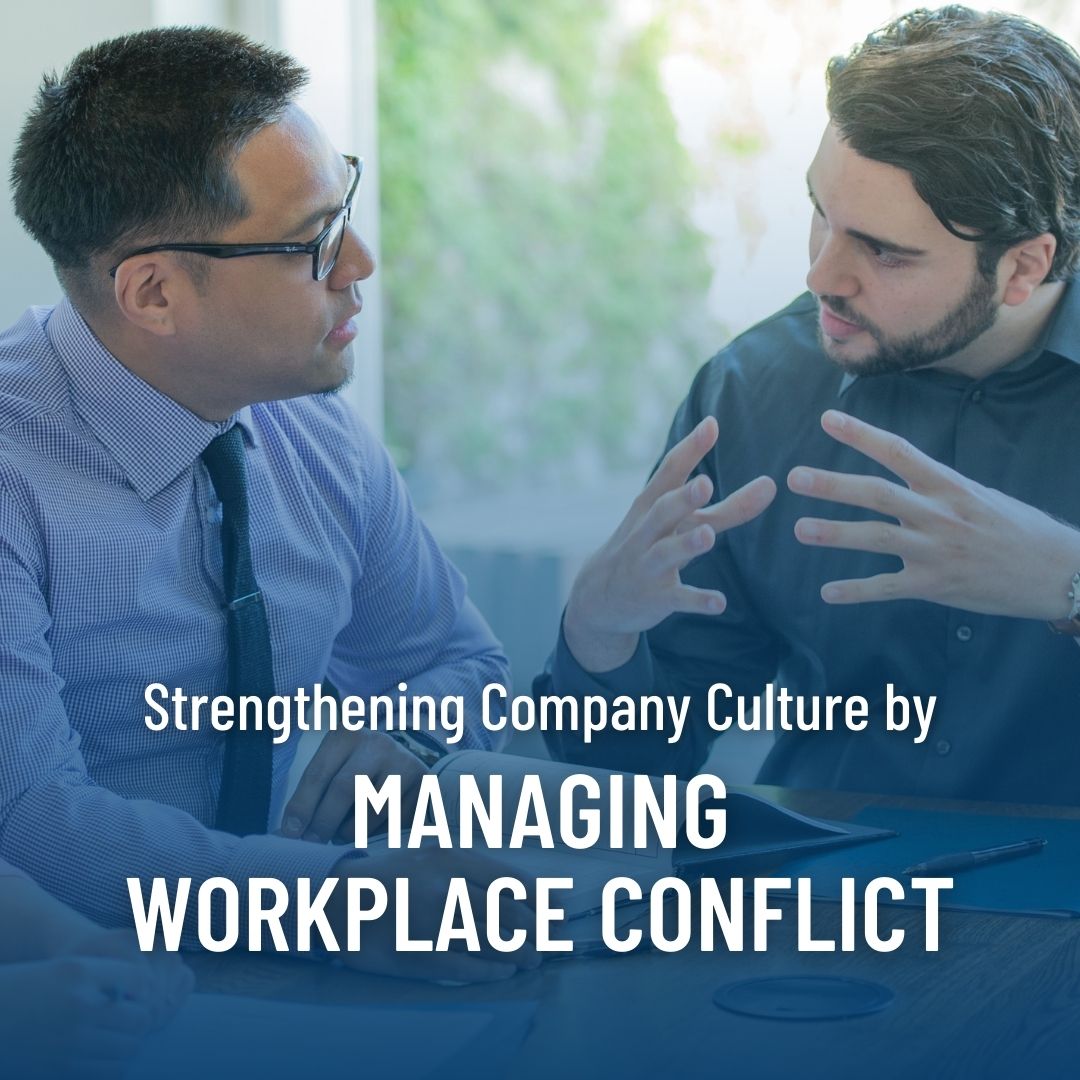
THE EXIT PLANNING BLOG
Keep up-to-date with exit planning, succession planning, industry trends, unique specialty insights, and useful content for professional advisors and business owners.
Share this
Is Workplace Culture Really Important to the Success of Your Business?
by Colleen Kowalski on October 7, 2021

We hear this all the time in the business world. Whether it is a viral post on LinkedIn praising a certain organization’s work-life balance model, or an article about unique office spaces, company culture has become the buzzword in the business world. And for a good reason.
A recent study has shown that 15% of job seekers declined a job due to the company’s culture. Not only do people decline jobs, but 24% of employees are likely to quit if they do not like the organization’s culture. The strength of your organization’s social and human capital determines your business value. Social and human capitals are two of the 4 Intangible Capitals in every business. Christopher Snider writes in Walking to Destiny that your social capital represents your, “culture, your brand, [and] the way your team works.”
So, how do you measure the strength of your company’s social capital or culture? And more importantly, is this culture actually of value to your desired employee base?
How Strong is Your Culture?
Company culture encompasses more than a ping-pong table in the breakroom and a relaxed dress code. Although physical attributes of an office add to the culture of the business, the intangible components are sometimes even more important. Does your company have a culture of honesty or collaboration? How likely is it for an entry-level employee to feel their voice is heard in company initiatives?
According to an article written in Forbes, “The more your employees feel appreciated and valued, the harder they work to succeed, and thus help the company succeed. If they are passionate about the company’s mission and product, they are more invested in the company and helping it improve.” In fact, having highly engaged employees can lead to a 202% increase in performance.
Studies show that 88% of employees believe that strong company culture is a key to business success. Christopher Snider writes, “social capital is hard to measure and it takes years to discover it. But you know it when you have it.” Does your company have strong social capital and an easily identifiable culture?
Answer the following questions to determine if your company culture is strong:
- Does your company have expressed and written Core Values that are lived out daily by every member of the organization?
- Do you foster a community feeling amongst the employees through collaboration and creativity?
- Does every aspect of your work have your unique “stamp” on it that your customers could easily identify as your business?
- Do you encourage communication between all levels of employees and is employee feedback considered and accepted?
How Does Social Capital Impact Human Capital?
One of the main components of strong business culture is how it impacts people. Whether they are your employees, contractors, customers, or clients – people make strong businesses. Human Capital is the measure of talent on your team. 91% of managers in the U.S. say a candidate’s alignment with the company culture is equal to or more important than skills and experience.
An employee who fits the company culture is also more likely to be more motivated to see the business succeed as they feel a connection to the company. Christopher Snider writes, “top talent wants more than “a job.” They want to be part of something bigger than that – a cause. They are looking for real passion and a leader who will provide inspiration.”
EPI President, Scott Snider, shared, “For me, I thought we had a great culture, and then the pandemic hit, our culture was challenged and we had to change. For us, it was actually a pivotal positive change. EPI rewrote our purpose and core values, redefined work/life balance for our people, and began an unlimited vacation policy in 2021. We also focused on professional development programs and bettered the way we communicate as a team.”
A Gallup Poll found that companies with a strong culture have less staff turnover than those that do not. In fact, the companies with strong cultures had a 13.9% turnover rate whereas those with weaker cultures had a 48.4% turnover rate – over three times as high as those with a strong company culture!
Without a strong company culture, your employees will not feel as though they are making a remarkable difference.
Ask yourself the following questions to see if your Human and Social Capitals are aligned:
- Are your core values reflected in each member of your team?
- Is your core purpose as a company inspirational for your employees?
- Can you describe actual experiences and share stories that demonstrate your commitment to your core values and purpose?
- Do you have an incentive program in place to motivate top-performing employees?
- How well do you retain top talent in your organization?
- Why do employees leave your organization?
- Do you offer opportunities for employees to share their ideas for business growth?
Share this
- Blog (520)
- CEPA (367)
- exit planning (243)
- CEPA community (181)
- Business Owner (135)
- Exit Planning Summit (85)
- EPI Chapter Network (82)
- Exit Planning Partner Network (76)
- EPI Announcement (49)
- Content (48)
- Value Acceleration Methodology (46)
- Webinars (37)
- Excellence in Exit Planning Awards (32)
- Marketing (30)
- 2024 Exit Planning Summit (28)
- 5 Stages of Value Maturity (26)
- Books (24)
- Exit Planning Teams (22)
- EPI Team (21)
- 2023 Exit Planning Summit (20)
- Leadership (20)
- family business (19)
- women in business (19)
- Intangible Capital (18)
- Exit Options (17)
- Black Friday (16)
- EPI Academy (16)
- CPA (15)
- State of Owner Readiness (14)
- Chapters (12)
- Chris Snider (12)
- National Accounts (12)
- Small business (12)
- Walking to Destiny (12)
- charitable intent (12)
- personal planning (12)
- Financial Advisors (9)
- 5 Ds (8)
- About us (8)
- Podcast (8)
- Insiders Bash (7)
- Scott Snider (7)
- Christmas (6)
- Exit Planning Content Library (6)
- Case Studies (5)
- Owner Roundtables (5)
- Season of Deals (5)
- Value Advisors (5)
- financial planning (5)
- Awards (4)
- Exit & Succession (4)
- Five Ds (4)
- executive training (4)
- Circle of Excellence (3)
- Owners Forum (3)
- forbes (3)
- EPI Thought Leadership Council (2)
- Exit Is Now Podcast (2)
- Peter Christman (2)
- Three Legs of the Stool (2)
- Veteran (2)
- Whitepapers (2)
- author (2)
- Business Owners Forum (1)
- DriveValue (1)
- business consultants (1)







